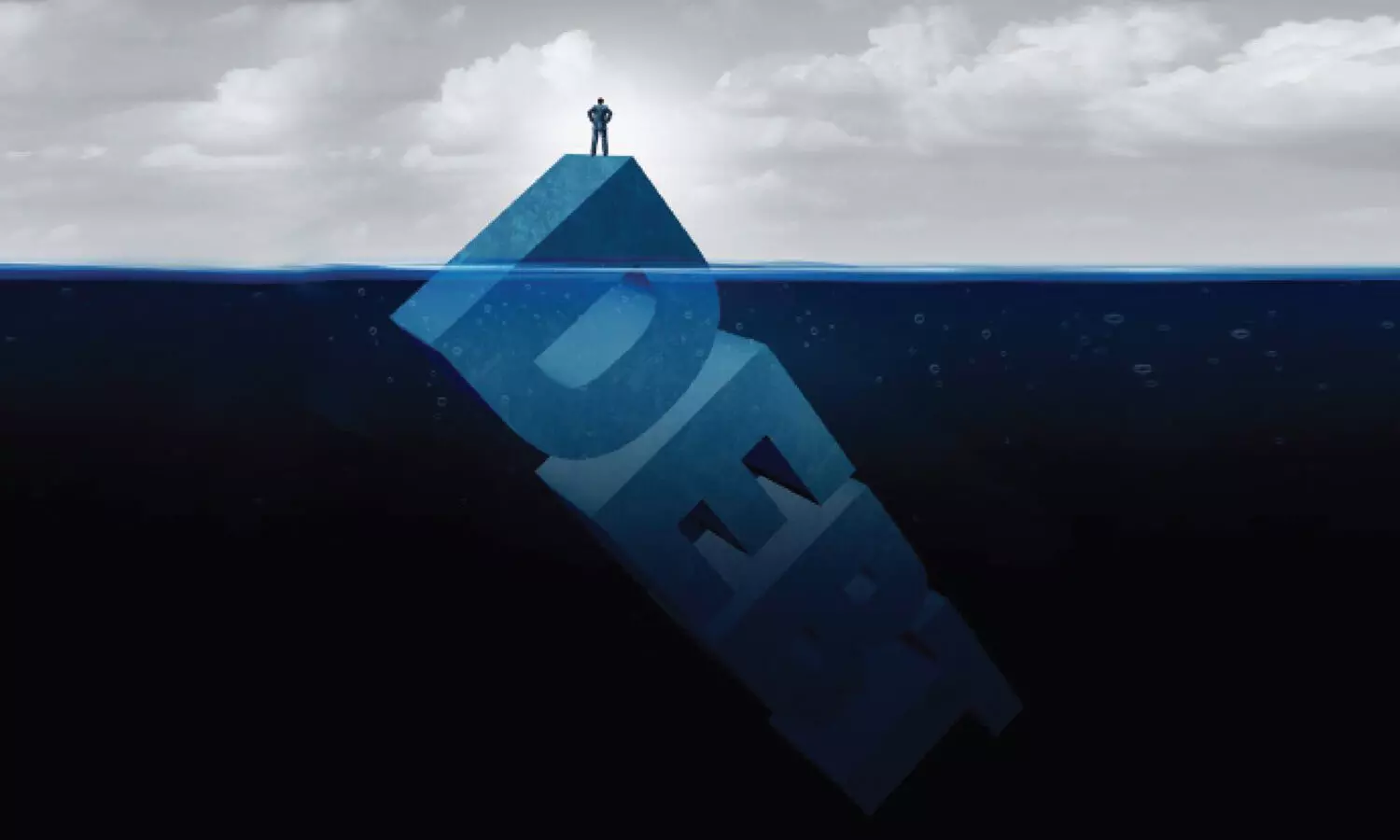- Home
- News
- Articles+
- Aerospace
- Artificial Intelligence
- Agriculture
- Alternate Dispute Resolution
- Arbitration & Mediation
- Banking and Finance
- Bankruptcy
- Book Review
- Bribery & Corruption
- Commercial Litigation
- Competition Law
- Conference Reports
- Consumer Products
- Contract
- Corporate Governance
- Corporate Law
- Covid-19
- Cryptocurrency
- Cybersecurity
- Data Protection
- Defence
- Digital Economy
- E-commerce
- Employment Law
- Energy and Natural Resources
- Entertainment and Sports Law
- Environmental Law
- Environmental, Social, and Governance
- Foreign Direct Investment
- Food and Beverage
- Gaming
- Health Care
- IBC Diaries
- In Focus
- Inclusion & Diversity
- Insurance Law
- Intellectual Property
- International Law
- IP & Tech Era
- Know the Law
- Labour Laws
- Law & Policy and Regulation
- Litigation
- Litigation Funding
- Manufacturing
- Mergers & Acquisitions
- NFTs
- Privacy
- Private Equity
- Project Finance
- Real Estate
- Risk and Compliance
- Student Corner
- Take On Board
- Tax
- Technology Media and Telecom
- Tributes
- Viewpoint
- Zoom In
- Law Firms
- In-House
- Rankings
- E-Magazine
- Legal Era TV
- Events
- Middle East
- Africa
- News
- Articles
- Aerospace
- Artificial Intelligence
- Agriculture
- Alternate Dispute Resolution
- Arbitration & Mediation
- Banking and Finance
- Bankruptcy
- Book Review
- Bribery & Corruption
- Commercial Litigation
- Competition Law
- Conference Reports
- Consumer Products
- Contract
- Corporate Governance
- Corporate Law
- Covid-19
- Cryptocurrency
- Cybersecurity
- Data Protection
- Defence
- Digital Economy
- E-commerce
- Employment Law
- Energy and Natural Resources
- Entertainment and Sports Law
- Environmental Law
- Environmental, Social, and Governance
- Foreign Direct Investment
- Food and Beverage
- Gaming
- Health Care
- IBC Diaries
- In Focus
- Inclusion & Diversity
- Insurance Law
- Intellectual Property
- International Law
- IP & Tech Era
- Know the Law
- Labour Laws
- Law & Policy and Regulation
- Litigation
- Litigation Funding
- Manufacturing
- Mergers & Acquisitions
- NFTs
- Privacy
- Private Equity
- Project Finance
- Real Estate
- Risk and Compliance
- Student Corner
- Take On Board
- Tax
- Technology Media and Telecom
- Tributes
- Viewpoint
- Zoom In
- Law Firms
- In-House
- Rankings
- E-Magazine
- Legal Era TV
- Events
- Middle East
- Africa

India's Bad Debt – An International Perspective
India's Bad Debt – An International Perspective

INDIA'S BAD DEBT – AN INTERNATIONAL PERSPECTIVE NARCL's creation provides a key opportunity for Indian banks (especially state-owned banks) to sell distressed loans and improve their balance sheets An important takeaway is that NARCL should have a finite tenure and a clear and specific mandate that is closely followedIn January 2022, Dinesh Khara, the Chairman of State Bank of...
To Read the Full Story, Subscribe to Legal Era News
Access Exclusive Legal Era Stories, Editorial Insights, and Expert Opinion.
Already a subscriber? Sign in Now
INDIA'S BAD DEBT – AN INTERNATIONAL PERSPECTIVE
NARCL's creation provides a key opportunity for Indian banks (especially state-owned banks) to sell distressed loans and improve their balance sheets
An important takeaway is that NARCL should have a finite tenure and a clear and specific mandate that is closely followed
In January 2022, Dinesh Khara, the Chairman of State Bank of India announced that the National Asset Reconstruction Company("NARCL") has received all approvals to commence its operations. NARCL is what is colloquially known as a bad bank, formed to acquire illiquid and risky assets, such as bad debt, from distressed financial institutions. There are many other jurisdictions where bad banks have been deployed to clean up the balance sheets of distressed lenders. This article seeks to compare NARCL with its counterparts around the world and point out some lessons which have been learnt by other bad banks.

The structure of NARCL
NARCL is a state-owned bank that will receive assistance from India Debt Resolution Company Ltd, which is majority-owned by private banks, by way of an exclusive arrangement on a principal-agent basis with final approvals from NARCL as the principal. Thirty-eight accounts have already been earmarked to transfer to NARCL. It was planned that 15 distressed assets would be transferred to NARCL by the end of March 2022.However due diligence, procedural and valuation issues proved to take longer than expected and, as at the date of this article, these transfers are yetto take place. On March 10, 2022 ICICI Bank signed an agreement to invest in NARCL, acquiring 5% equity. Public sector banks will maintain a 51% ownership in NARCL with other financial institutions (including non-public sector banks) and debt management companies holding the remaining share.
India recorded a ratio of gross non-performing assets to total advances over 8% in the 2020 fiscal year and 7.5% as of September 2020. India's state owned banks account for more than 60% of the bad debt, although the State Bank of India, Bank of Baroda and Punjab National Bank each reported declines in non-performing loans in the last quarter of 2021. The approval of NARCL will be a welcome move for the banks, as the proceeds from the sale of the bad assets will help them to further recoup some of the money they have lent.
Lessons from around the world
India is far from the first jurisdiction to utilise a bad bank to reform its distressed debt markets. In response to the Asian financial crisis, China set up bad banks for each of its big four state-owned banks with the intention that they would acquire non-performing loans from those banks. The goal was to resolve the non-performing loans within 10 years, however in 2009, their tenure was extended indefinitely. Although India's model will not be based on that of China, there are clearly lessons to be learnt. An important takeaway is that NARCL should have a finite tenure and a clear and specific mandate that is closely followed. In contrast, the China Huarong Asset Management Co. Ltd. bank in China extended its tenure and broadened its mandate transforming into an investment bank, and it has been argued that the change in timeline of the bank has led to financial instability.
Moving away from Asia, we have learned from the Resolution Trust Corporation in the United Statesand Securum in Sweden that by strictly sticking to mandates and setting timelines, bad banks can be successful. In the US and Sweden, the bad banks were wound up within their predicated life spans. Sweden's was dissolved and had disposed of 98% of its assets. Similarly, in the UK, UK Asset Resolution ("UKAR") was created in response to the financial crisis and managed the assets of Northern Rock and Bradford & Bingley. Like the US and Sweden, UKAR was focused on meeting its 2021 deadline and by 2019 it had fully repaid the government loans given to the companies, and then sold the companies (together with their assets) back into the private sector in 2021. In Ireland, the National Asset Management Agency ("NAMA") was set up to take over the Irish bank's property debts after the financial crisis. NAMA was originally due to be wound up in 2021, however in 2019, like China Huarong Asset Management Co. Ltd, the deadline was extended, but only until 2025. Paschal Donohoe, the Minister of Finance in Ireland, explained that this was to allow NAMA to deal with a small number of remaining loans. It has been indicated that when NAMA is wound up, it will return a surplus on its activities as it has made a profit each year since 2011. Conversely, this perhaps suggests that extending deadlines is not always a cause for concern.
Looking to the future
The success of NARCL, as with other bad banks, is a combination of a variety of factors. First, such an institution needs political will and backing from the government. Support from political leaders provides the vision and incentive for bad banks to acquire distressed debt. This has to come from the top-down, governmentally speaking. It illustrates a fresh start, especially for state-owned banks that have historically recorded large amounts of bad debts. Further, the process for take-on and divestment of such debt must be clear and streamlined, which acts as a further factor to drive action by regulators and others to encourage action on bad debt. A final factor is a careful use of private sector expertise in well-developed financial markets who are able to acquire bad debt. In this respect, the agreement of ICICI Bank to acquire 5% equity in NARCL is a positive sign.
No two global financial markets are identical and there are specific risks inherent to bad debt in the Indian market. For example, the relationship driven nature of state-owned banks in India could be an obstacle to NARCL acquiring the volume of loans that would enable its success. This requires governmental action to incentivise such divestment, but also a change in mindset at these banks.
Despite such risks, NARCL's creation is undoubtedly a step in the right direction for the future of the Indian financial markets in respect of bad debt. It provides a key opportunity for Indian banks (especially state-owned banks) to sell distressed loans and improve their balance sheets. If India canclosely follow the success of other bad banks around the world, this could prove to be a seminal moment for the Indian debt markets.
Disclaimer – The views expressed in this article are the personal views of the authors and are purely informative in nature.


